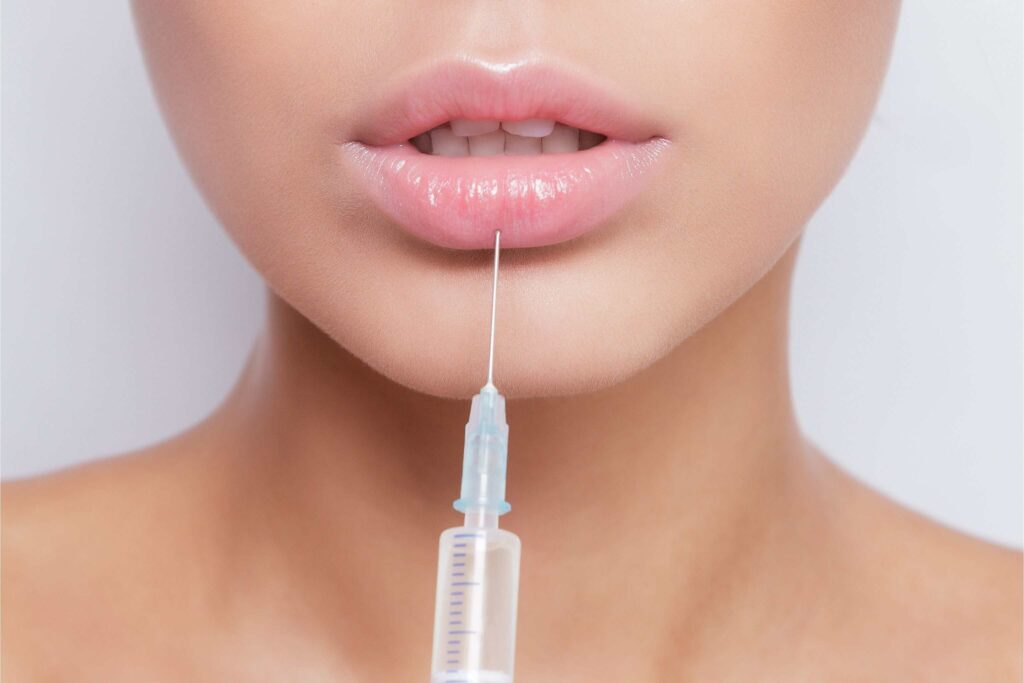Having a healthy smile is more than just pearly whites; it boosts your confidence and shows off your overall health. In spite of all the technical terms and procedures flying around, maintaining good oral health can feel challenging. You will find this comprehensive guide to be a friendly companion that will direct you through the complexity of essential dental health info.
Root Canals: What Are They and When Do You Need Them?
Root canal therapy is a common dental procedure that saves teeth from extraction. The procedure is performed when the pulp, the soft tissue inside the tooth, becomes infected or damaged, which can result in intense pain, swelling, or even an infection of the tooth. During a root canal, the dentist carefully removes the infected pulp, cleans the inside of the tooth, and then seals the tooth by applying a filling or crown. Thus, your natural tooth remains intact and you don’t have to worry about further infection.
Furthermore, if you’re suffering from severe tooth pain or sensitivity, root canal therapy might be a suitable option for you. For more on common misconceptions about root canals, check out root canal treatment: common myths busted.
Advantages of Root Canal Therapy
- Pain Relief: Root canal therapy provides immediate pain relief. A tooth that is infected can cause intense discomfort, but by addressing the actual and primary cause of the infection, a root canal treatment can eliminate this painful sensation.
- Preserving Natural Teeth: Root canals help safeguard your natural teeth, so it’s always better than pulling them out. Having natural teeth makes chewing easier and keeps your jawbone healthy.
- Infection Prevention: Through the removal of infected pulp and thorough cleaning of the area, a root canal is capable of preventing the infection from spreading to other teeth or parts of the body in the future. If you’re interested in the impact of root canals on tooth preservation, read more about it in kill the pain, save the tooth.
The Role of Botox in Dentistry
It is a common misconception among people that Botox is only used for cosmetic procedures that are aimed at reducing wrinkles and fine lines. Despite this, Botox is also seen as an effective tool for both cosmetic and functional purposes in dentistry.

Cosmetic Use of Botox
A lot of people use Botox to make their smiles look better. A dentist can administer Botox to relax muscles around the mouth, which can make it look less gummy. In addition to softening lines and wrinkles around the lips, it gives them a more youthful look.
Therapeutic Use of Botox
Botox is also used to treat conditions such as bruxism (teeth grinding) and TMJ disorders (temporomandibular joint disorders). When this is the case, patients can use Botox to relax the muscles that cause discomfort, which will help them manage pain and prevent further damage to their teeth in the future.
Affordable Cosmetic Dentistry Options
A beautiful smile can make you feel more confident and improve your overall quality of life as well as boost your self-esteem. The good news is that there are a few affordable cosmetic dentistry procedures that can enhance the beauty of your smile without hurting your wallet. These are the top five most affordable cosmetic dentistry procedures that you can choose from:
- Teeth Whitening
With professional teeth whitening, your smile can be brightened by several shades in a single session. You can also purchase nonprescription teeth whitening kits if you are searching for a more cost-effective option. While professional whitening usually lasts longer, the price is usually higher as well.
- Dental Bonding
Minor cosmetic issues like chips, cracks, and gaps between teeth can be fixed with dental bonding. It involves applying a tooth-colored resin to the affected area, which is then shaped and polished for a natural look.
- Dental Veneers
Usually, veneers are thin shells made out of porcelain or composite resin that are crafted to fit over the front surfaces of teeth to cover them up. Several cosmetic issues can be corrected with the help of these procedures, including discoloration, misalignment, and gaps in the teeth. The benefit of veneers over bonding is that they are longer lasting and provide a more permanent solution. To explore more affordable options, check our guide on top 5 affordable cosmetic dentistry procedures in this year.
- Gum Reshaping
The purpose of gum reshaping, or contouring is to create a more balanced and symmetrical smile by altering the shape of the gums. To achieve a higher level of precision and to speed up the recovery process, this procedure is typically performed using a laser.
- Composite Fillings
With composite fillings, you can fix cavities in an aesthetically pleasing way. Fillings are nearly invisible because they’re matched to the color of your teeth.
The Impact of Medications on Oral Health
Oral health side effects of medications aren’t well known to many people. About half of all Americans take prescription medications, which can cause dental problems.
Common Medication Side Effects
- Dry Mouth (Xerostomia): Lots of medicines make your mouth dry. You need saliva to wash away food particles and neutralize acids produced by bacteria in your mouth. You’re more likely to get cavities and gum disease if you don’t have enough saliva.
- Abnormal Bleeding: If you take blood thinners, you might experience excessive bleeding during dental treatments, especially if you have surgery or deep cleaning.
- Fungal Infections: Inhalers for asthma can make you more likely to get fungal infections like oral infection (candida). If you use an inhaler, make sure you rinse your mouth afterward.
- Gum Tissue Enlargement: Some medications, like those for migraines or high blood pressure, can cause gum overgrowth. The severity of gum disease can be worsened if your teeth are not properly cleaned. To learn more, visit are your medications damaging your oral health?.
Dental Appointment Preparation
If you prepare properly, you can make your dental cleaning appointment more convenient and ensure you get the most out of it. The following tips will help you prepare for your next dental cleaning or treatment.
Checklist for Pre-Appointment
- Advance Scheduling: If you can, schedule a time that works for you to reduce stress and avoid being rushed.
- Keep Your Dentist Informed: Keep your dentist up-to-date on any medications or health changes. In this way, your dentist can take the necessary precautions.
- Examine Your Dental History: You should review your dental records if you have had dental work in the past. Preparing questions and concerns before your visit can help. For detailed tips, check out Tips for Preparing Your Dental Cleaning Appointment.
The Importance of Regular Dental Examinations

Maintaining excellent oral health requires regular dental checkups. At All Smiles Dental, Dr. Natalia Alvarado, a renowned dentist in comprehensive dentistry in Fort Lauderdale, provides personalized care to help detect and treat issues such as cavities, gum disease, and other oral health problems at their earliest stages. Additionally, these routine appointments include professional cleanings to remove plaque and tartar buildup, thereby preventing tooth decay and gum disease from worsening.
Expectations During a Dental Checkup at All Smiles Dental
- Examination: Dr. Alvarado examines your teeth, gums, and mouth for any signs of disease or abnormalities, ensuring early intervention.
- Cleaning: During the cleaning procedure, Dr. Alvarado, as a skilled dental hygienist, will perform a thorough cleaning in order to remove plaque and tartar, which will help prevent cavities and gum disease.
- X-Rays: If necessary, she may take X-rays to detect any hidden problems that may not be noticeable during the examination.
- Fluoride Treatment: A fluoride treatment strengthens enamel and helps prevent tooth decay, adding an extra layer of protection to your smile.
During your visit to All Smiles Dental, Dr. Alvarado ensures that you receive comprehensive dental care that is dedicated to the long-term health and well-being of your mouth.
What is the Recommended Frequency of Dental Visits?
Most dentists, including Dr. Natalia Alvarado at All Smiles Dental, recommend regular checkups every six months.
As a regular patient of All Smiles Dental, Dr. Alvarado is able to detect emerging dental problems earlier, such as cavities, gum disease, and other diseases of the mouth. By tackling issues early, you can avoid more complicated and expensive treatments later on.
However, if you smoke, have diabetes, take medications, or have had dental work in the past, you may need more frequent appointments. In such cases, All Smiles Dental provides personalized care and may recommend checkups every three to four months to closely monitor your oral health.
It is our goal to keep your smile healthy and glowing, regardless of whether you need a routine checkup, periodontal treatment, or root canal therapy.
Final Thoughts
Good dental health requires regular dental visits, proper at-home care, and awareness of the effects of medications and lifestyle choices on your teeth. You can maintain a healthy mouth by taking an informed approach, regardless of whether you are considering a root canal to save a tooth, cosmetic treatments like Botox for a more youthful appearance, or preparing for your next dental cleaning.
If you are seeking affordable cosmetic dental procedures, All Smiles Dental can provide you with a number of options to fit your budget. For tips on preparing for your oral cleaning, find out how to prepare for your appointment.

